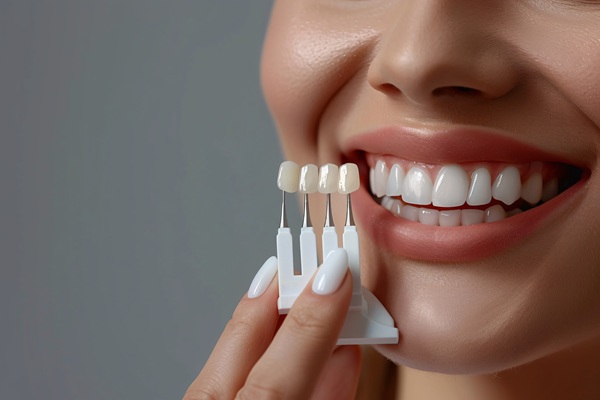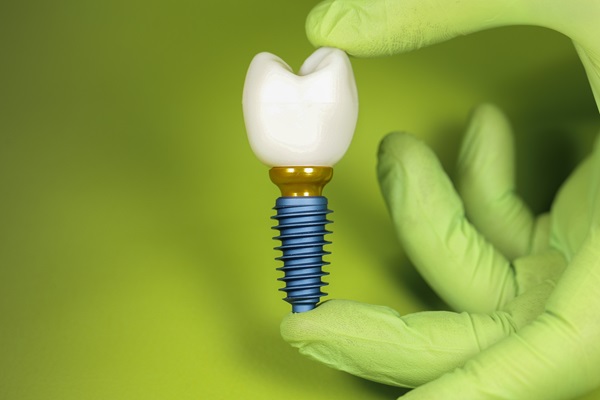 Dental implants are a relatively new and effective way to replace teeth, but only some are considered ideal candidates. To help determine if you are, we require all our patients to undergo a consultation. This guide will review what we check for to approve a patient for candidacy.
Dental implants are a relatively new and effective way to replace teeth, but only some are considered ideal candidates. To help determine if you are, we require all our patients to undergo a consultation. This guide will review what we check for to approve a patient for candidacy.
What we look for during the dental implant consultation
Periodontal disease
Periodontal (gum) disease is a condition that causes inflamed gums, leading to recession and loss of attachment to the teeth. If left untreated, this inflammation can spread to other areas of the mouth, including the jawbone, and become irreversible.
During the initial consultation with our office, we will perform a thorough oral examination to identify any signs of gum disease that may be present. If necessary, we will recommend treatment options such as scaling and root planing (deep cleaning) and antibiotics so the patient can achieve optimal oral health before beginning the dental implant process.
Underlying health conditions
If a patient has untreated diabetes, it is important to bring this up with the dentist. Diabetes can affect the jawbone, making it more difficult for the implant and surrounding bone to bond together. Therefore, patients who do not take medication for their diabetes should consult their primary care physician on a long-term treatment plan before beginning the dental implant process.
Cancer treatment can also affect the jawbone, similar to untreated diabetes. Undergoing radiation therapy or chemotherapy can damage the soft tissue around the intended implant site and cause necrosis (tissue death) in other areas of the mouth, eventually spreading to the implant site. This makes it difficult for an implant and surrounding bone to properly bond after surgery unless there is adequate time to heal since the cancer treatment.
Jawbone density
The amount of bone in the jaw is a leading factor in determining if one is a good candidate for dental implants. If one’s overall jawbone density is low, this causes insufficient support for the implant(s), making them loose over time. Patients undergo image testing from a CT scan to determine the amount of bone available. If a patient does not have an adequate jawbone, this does not automatically decrease their chances of receiving dental implants. The dentist may recommend a bone graft to create a foundation for the implants to remain secure. However, this will vary based on the patient’s specific case.
Smoking
In order to receive dental implants, dentists prefer non-smokers or people who do not consume tobacco in general. Smoking can decrease jawbone density and slow or inhibit the body's ability to heal. Additionally, the acids in cigarette smoke can damage the gum tissue, making it more likely for the patient to experience peri-implantitis, which is an infectious disease that affects the soft tissue around the implant. This condition can lead to implant failure. As a result, the dentist may recommend the patient cease smoking or other tobacco products for at least six months before scheduling another consultation.
Schedule a consultation today
We hope you have found this guide helpful in understanding the signs we will look for during the dental implant screening. Call our office if you have any questions or to schedule a consultation to start the journey to your new smile.
Request an appointment or call Dental Partners Dickson at 615-931-4088 for an appointment in our Dickson office.
Related Posts
A general dentist helps patients prevent oral health concerns before they become problems. A dental checkup is the key way they achieve this. However, there are other preventive dental services that general dentists offer to boost oral health for patients of all ages.Preventive dental services focus on maintaining oral health and avoiding the development of…
Teeth whitening treatments can help you achieve the bright smile you have always wanted. Dentists have two main options they offer patients regarding whitening their teeth: professional teeth whitening and at-home whitening kits. Professional teeth bleaching treatments can be broken down into conventional and laser whitening treatments.These two teeth-whitening alternatives use peroxide-based chemicals as bleaching…
Considering dental crowns? Read on to learn more about this restoration option. Dental crowns can address a number of issues, ranging from cavity treatment to stain coverage. However, despite being a common and successful treatment, there are a few factors to consider ahead of time.Below is a quick rundown of what to know before getting…


